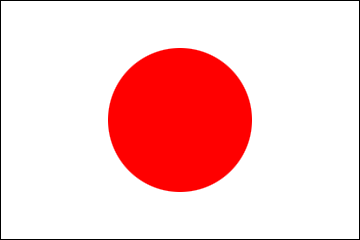Thai-Japanese Relations & Foreign Policy
Country Development Cooperation Policy for the Kingdom of Thailand
1. Objectives of Development Cooperation
Thailand is located at the center of the Indochina Peninsula, facing both the South China Sea and the Indian Ocean, occupying a geopolitically important position. As a core member in the development of the ASEAN Community and the Mekong region, Thailand is a vital partner in realizing a Free and Open Indo-Pacific (FOIP).
Thailand and Japan have built close relations across a wide range of fields including politics, economy, and culture, with particularly active people-to-people exchanges. Economically, the two countries are strongly connected and Thailand is also a key economic partner for Japan. Japan is Thailand's top foreign investor and donor, and approximately 6,000 Japanese companies operate in Thailand, making it a major industrial hub, particularly in the automotive sector.
For Thailand’s sustainable development, it is necessary to address issues aligned with the Sustainable Development Goals (SDGs), such as developing human resources with the aim of industrial advancement, enhancing research and development capabilities, improving regional connectivity through quality infrastructure, advancing disaster risk reduction, and tackling challenges related to energy, environment, and climate change. Moreover, as Thai society matures, issues such as declining birth-rates, population aging, and support for vulnerable populations should be also addressed.
By the end of 2023, Japan had provided approximately 2.85 trillion Yen in total through ODA loans, technical cooperation, and grant aid to support Thailand’s socio-economic development. In 2022, the prime ministers of both countries agreed to upgrade the bilateral relationship to a “Comprehensive Strategic Partnership” and signed the “Japan-Thailand Five-Year Strategic Economic Partnership Plan.”
Utilizing these frameworks effectively and under the spirit of “co-creation,” Japan continues to provide cooperation that meets Thailand’s needs. As Thailand itself is now also a donor, promoting joint support for third countries that leverages the strengths of both nations not only further strengthen Japan–Thailand relations but also contribute to the international community
2. Basic policy of Japanese ODA (overall goal)
Promotion of cooperation to address modern challenges and lead regional development based on Comprehensive Strategic Partnership
With our Comprehensive Strategic Partnership based on close political, economic, and social relationship, Thailand and Japan will promote collaborative responses to urbanization, demographic shifts, and climate change, while contributing to balanced development across the ASEAN and the Mekong Region.
3. Priority Areas (subsidiary goals)
(1) Sustainable development of economy and coping with maturing society
Cooperation is undertaken in areas that form the foundation of sustainable socio-economic development, including human resource development aligned with industrial advancement, strengthening R&D capabilities, green transformation, improvement of urban functions such as traffic congestion relief and disaster prevention, and the development of high-quality infrastructure. In addition, cooperation is undertaken to support responses to issues arising from a maturing society, such as environmental and climate change issues, declining birthrate and aging population, healthcare, and protection for vulnerable populations.
(2) Coping with common issues in ASEAN countries
Cooperation is undertaken in order to strengthen connectivity and economic integration within the ASEAN and the Mekong region, mitigate disparities, and promote human security. It also supports efforts that foster autonomous growth of Mekong countries by enhancing their individual initiatives.
(3) Providing support for Third Countries
Through consultations with Thailand on challenges faced by the ASEAN/Mekong region and the international community, Thailand and Japan jointly undertake cooperation projects for third countries. Special focus is placed on alignment with key Japanese policies such as FOIP, through mechanisms such as the Japan-Mekong cooperation, Ayeyawady Chao Phraya Mekong Economic Cooperation Strategy (ACMECS), and the Mekong River Commission (MRC). Activities include third-country training and expert dispatch to ASEAN and other regions. Furthermore, the Japan–Thailand Partnership Program (JTPP) is promoted, and new collaborative cooperation is pursued.
4. Points to be considered¹
(1) As Thailand is a relatively high-income country and plays a donor role in neighboring regions, Japan’s cooperation with Thailand is undertaken to implement based on a strategy of selection and focus, assessing Thailand’s financial capacity and needs, and taking into account the promotion of Japanese corporate activities in Thailand. Cooperation strategically combines technical cooperation, ODA loans, and overseas investment, while emphasizing value co-creation and leveraging Japan’s expertise and technology.
(2) From a diplomatic perspective, cooperation is undertaken to strengthen friendly relations with Thailand through bilateral and triangular cooperation projects.
¹ The country-focused ODA evaluation reports are available at the following link;
Country Assistance Evaluation (2012), Available at: http://www.mofa.go.jp/policy/oda/evaluation/index.html 

